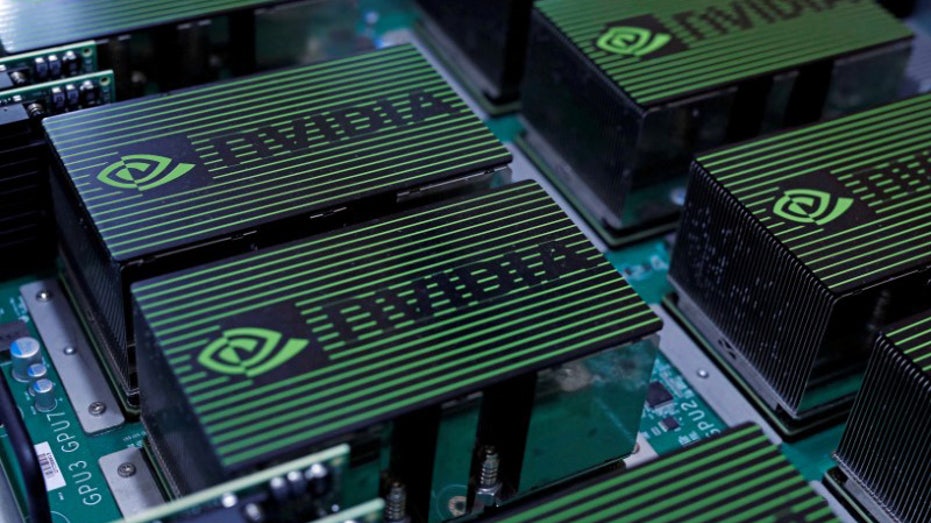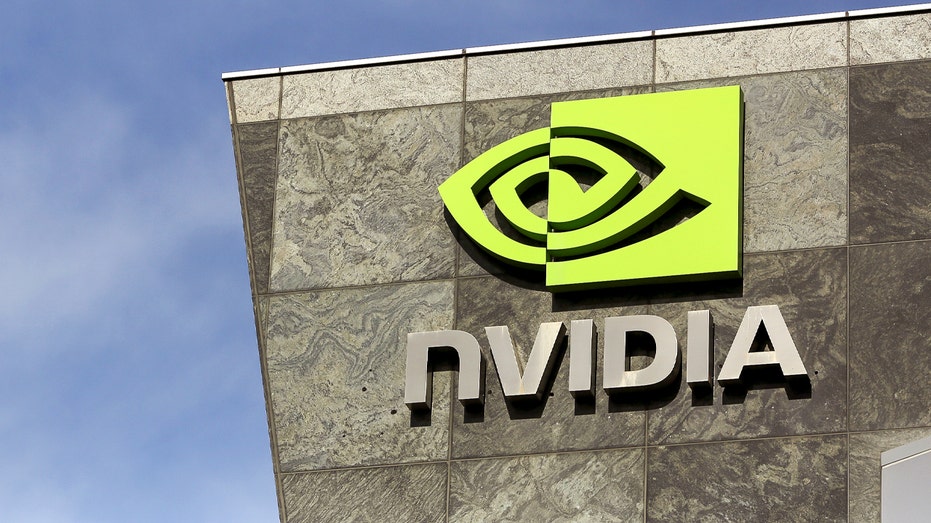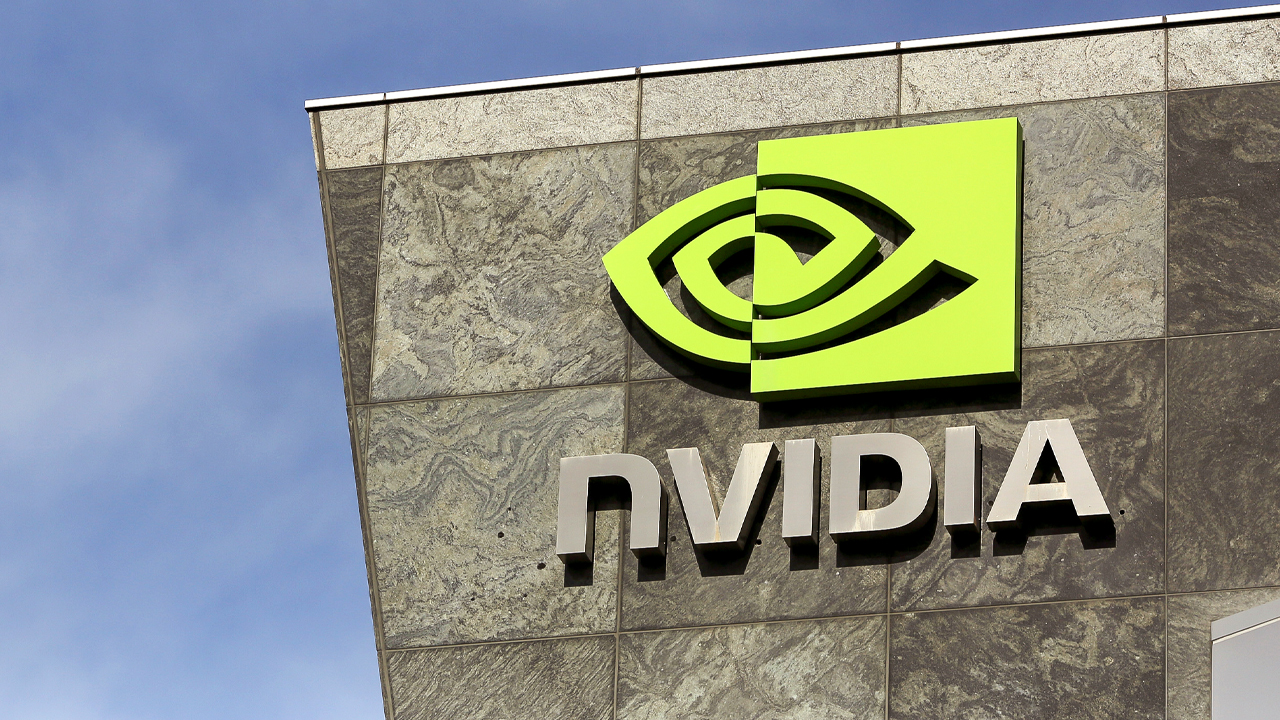Nvidia's sales set quarterly record
Graphics chip maker says gaming, data centers and other segments showed strong revenue growth
Nvidia Corp. posted record quarterly sales across its business and projected a further increase in the current period as it moves on from its failed takeover bid for semiconductor-design specialist Arm Ltd.
The graphics-chip maker on Wednesday said it generated $7.64 billion in sales in the most recent quarter, up 53% from the year-ago period. It reported $3 billion in net income, more than double the prior year's figure, and beat Wall Street expectations both on profit and sales.
GET FOX BUSINESS ON THE GO BY CLICKING HERE
Semiconductor companies are seeing strong demand as more goods and services become reliant on chips. The ravenous appetite has triggered a global chip shortage that some executives have estimated could last into 2024 and has had a mixed effect on the industry. It has dented chip sales as customers such as car and computer makers have had to delay selling their wares while they await missing parts, but it also has driven up prices for some semiconductors.

FILE PHOTO: The logo of Nvidia Corporation is seen during the annual Computex computer exhibition in Taipei, Taiwan REUTERS/Tyrone Siu/File Photo (REUTERS/Tyrone Siu/File Photo / Reuters Photos)
Santa Clara, Calif.-based Nvidia, the U.S.'s largest chip company by market value, said it expects revenue for the current quarter to be roughly $8.1 billion, ahead of estimates from analysts surveyed by FactSet. Data-center and videogaming sales are expected to be principal drivers of the increase, Nvidia financial chief Colette Kress said on a call with analysts.
OHIO GOVERNOR TOUTS INTEL'S $20B SEMICONDUCTOR INVESTMENT'S 'LONG-TERM IMPACT' FOR THE STATE
Nvidia shares closed up slightly Wednesday at $265.11 and retreated less than 1% after the company posted its quarterly results.
The company has enjoyed a strong period of revenue growth during the pandemic as videogame consumption increased and more individuals and businesses started using digital services that run on data centers.

Nvidia corporate logo. REUTERS/Robert Galbraith (REUTERS/Robert Galbraith / Reuters)
Revenue in the quarter advanced 37% from the year-ago period for Nvidia's critical gaming business and increased 71% for it data-centers activities. Car revenue, though, retreated 14% from the year-ago period with supply-chain constraints continuing to weigh on car production and auto makers phasing out some older equipment that uses Nvidia chips.
Nvidia expects automotive revenue to bounce back in the current quarter and gather pace during the second half of the fiscal year, Ms. Kress said.
CISCO RAISES ANNUAL EARNINGS FORECAST, ANNOUNCES $15 BILLION IN SHARE BUYBACKS
The chip company earlier on Wednesday said it has struck a partnership with car maker Jaguar Land Rover to work together on software-heavy cars. New vehicles featuring automated-driving systems and other services using artificial intelligence out of the partnership should start appearing in 2025, Nvidia Chief Executive Officer Jensen Huang said on the call.
Nvidia also has seen ups and downs in demand from cryptominers that historically used its video cards to produce digital currencies. The company last year launched a chip dedicated to satisfy the market. Revenue from its cryptocurrency chip was $24 million in the quarter, up from almost nothing in the year-ago period but down sharply from the $105 million the device generated in the prior quarter.
| Ticker | Security | Last | Change | Change % |
|---|---|---|---|---|
| NVDA | NVIDIA CORP. | 185.41 | +13.53 | +7.87% |
Nvidia last week agreed to abandon its acquisition of Arm amid regulatory scrutiny of the transaction.
Nvidia, in September 2020, agreed to buy Arm for $40 billion from SoftBank Group Corp. in what would have been the chip industry's biggest deal ever. In December, the Federal Trade Commission had sued to block the deal. U.K. officials had also opened a probe into whether the potential acquisition was anticompetitive.
CLICK HERE TO READ MORE ON FOX BUSINESS
"We gave it our best shot, but the headwinds were too strong, and we could not give regulators the comfort they needed to approve our deal," Mr. Huang said. Nvidia's strategy, he said, wouldn't change.
Write to Meghan Bobrowsky at Meghan.Bobrowsky@wsj.com




















